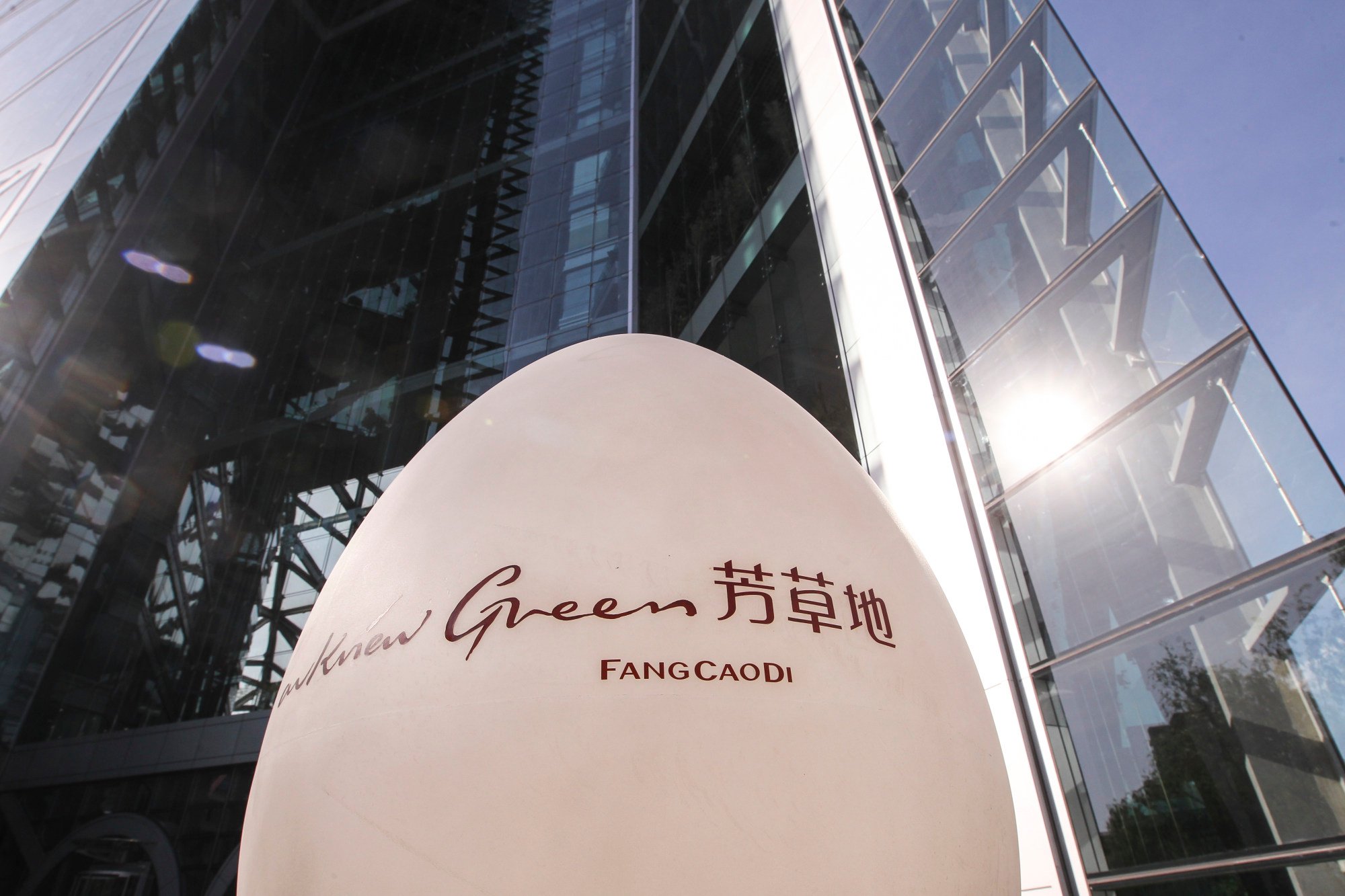A decrease in Chinese consumers' expenditure on luxury items is impacting upscale shopping centers in Beijing and Shanghai. Malls such as Parkview Green and K11 are reducing rental fees and targeting mid-range brands to draw more middle-income customers and reduce growing empty storefronts.
The 11-year-old upscale shopping center Shanghai K11, which belongs to the family of Hong Kong tycoon Henry Cheng Kar-shun, has been loosening its lease requirements for tenants due to decreasing rental revenue. A source shared this information with the Post but did not disclose specific rent figures.
In Beijing’s Central Business District, the iconic shopping center Parkview Green—which stands out with its pyramidal design and impressive art gallery—declared in March that it intended to bring in a wider range of dining options. This move was aimed at “revitalizing its commercial appeal” after well-known luxury labels such as Rolex and Ermanno Scervino decided to leave.
Are you looking for insights into the most significant issues and global trends? Find your answers here. SCMP Knowledge Our latest platform features handpicked content including explainers, FAQs, analyses, and infographics, all provided by our acclaimed team.
The Parkview Group of Hong Kong, which owns the property, listed it for sale last December due to difficulties with high mortgage payments and low occupancy rates, as reported by Bloomberg.

Tin Sun, who leads the Northern China research division at CBRE, stated that what Parkview Green signifies is a kind of real estate asset that was previously marketed as top-tier. However, due to current difficulties in upscale spending within China, adjustments must be made regarding its brand positioning and leasing strategy.
He said that the biggest challenge facing retail landlords was balancing rent with foot traffic, as the shift towards "experience-based consumption formats" typically resulted in lower rents and a decline in revenue.
However, if the transformation isn’t made and pedestrian flow isn't protected, the very existence of the project might be at risk," Sun stated. "As a result, numerous initiatives are now compelled to innovate and evolve.
In China’s major urban centers, mall vacancy rates continue to be high. Specifically, in Beijing, the vacancy rate increased slightly by 0.2 percentage points year-over-year to reach 10.6 percent during the first quarter of the year. This follows a drop of 2.7 percent in retail sales for 2024, as reported by Cushman & Wakefield recently.
In Shanghai, the vacancy rate increased to 9.5 percent during the same period, slightly above what it was a year prior, contrasting with a 3.1 percent decrease in retail sales.
The sales in mainland China’s luxury sector dropped by approximately 20 percent in 2024, reverting to figures from 2020, as reported by Bain & Co in their January publication. This decline was attributed to reduced consumer confidence along with a preference among shoppers for purchasing abroad.
This decline in high-end consumption has been affecting not just landlords, but also international luxury companies.
For instance, Kering closed two Gucci outlets in Shanghai back in February, as reported earlier by the Post. Meanwhile, Prada concluded its two-year stint at Shanghai’s Hongqiao International Airport. In the last year, these companies—Kering, LVMH, Chanel, Prada, and Burberry—have collectively shuttered 18 stores throughout China.
Some luxury brands plan to streamline their operations by decreasing both the number of stores and their distribution, while enhancing the prominence of key flagships within prominent upscale shopping centers," stated Ji Ming, the research director at JLL North China. "This change will likely cause certain formerly high-end malls to emphasize lifestyle and various retail categories instead.
JLL anticipates that rental prices in Beijing will decrease by approximately 7 percent this year, with property owners reducing rents or relaxing lease conditions to maintain high occupancy levels.
As shopping centers adapt to the evolving landscape marked by more experience-focused and cost-aware shoppers, properties are being transferred between owners.
For instance, according to reports from Bloomberg in March, Beijing Hualian Group Investment Holding was negotiating the potential sale of the SKP Beijing shopping center to Boyu Capital, a private-equity firm based in Hong Kong, with an estimated value ranging between $4 billion and $5 billion. As one of China’s finest and most profitable retail destinations, SKP Beijing experienced a decline in sales by 17%, amounting to 22 billion yuan ($3 billion), as reported locally in 2024.
Even though the mood was bleak, potential purchasers like insurance companies started looking for chances to find good deals, especially properties situated in desirable areas.
Transactions are anticipated to surge significantly in 2025," stated Alex Chen, who leads the capital markets division at JLL in Shanghai. "Interactions between purchasers and vendors are both lively and productive, with numerous agreements currently in progress.
He mentioned that prospective purchasers were drawn to certain developments because landlords were offering significant discounts to finalize the sales.
From January through March, transactions involving office buildings, hotels, shopping malls, and residential leasing projects in Shanghai saw a 20 percent increase compared to the prior quarter, totaling approximately 11.5 billion yuan, according to JLL data.
Additional contribution by Daniel Ren
More Articles from SCMP
Can the U.S.-China tariff dispute come to an abrupt halt just as swiftly as it started?
Jobs versus affordable products: the central issue in Trump’s trade conflict.
Hong Kong hospitals go high-tech following 'complete health screening'
Who is Lee Kwang-soo, a founding member of "Running Man" and an actor known for his roles in numerous films and Korean dramas?
The article initially appeared on the South ChinaMorning Post (www.scmp.com), which serves as the premier source for news coverage of China and Asia.
Copyright © 2025. South China Morning Post Publishers Ltd. All rights reserved.

Out Of Topic Show Konversi KodeHide Konversi Kode Show EmoticonHide Emoticon